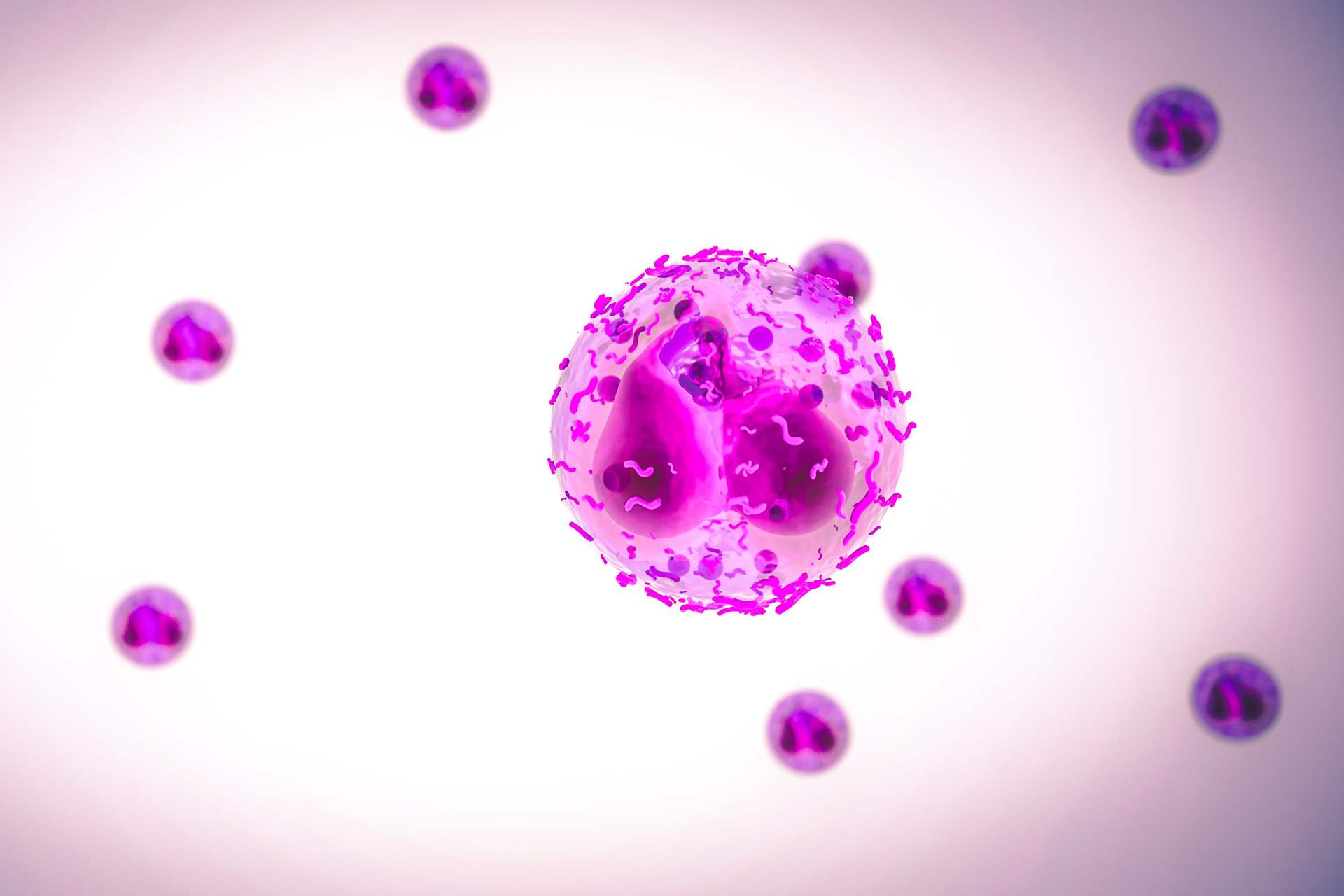What is already known
People who undergo cancer treatment sometimes develop a fever related to neutropenia, a severe loss of white blood cells. Previous research suggested that people with neutropenia-related fever have an altered gut microbiota, but how gut microbes contribute to such fever remains unclear.
What this research adds
Researchers analyzed stool samples from 119 cancer patients who received stem cell transplantation and developed neutropenia. People who also developed a fever had increased levels of Akkermansia muciniphila in their gut microbiota compared to those who didn’t develop a fever. Similar results were obtained in mice subjected to radiation to induce neutropenia. In these animals, targeting A. muciniphila with an antibiotic helped to preserve the gut mucus layer and reduce inflammation and fever.
Conclusions
The results suggest that the risk of developing fever may be linked to an increase of A. muciniphila in the gut. The findings may inform the development of microbial-based therapeutic approaches.
People who undergo cancer treatment sometimes develop a fever related to neutropenia, a severe loss of white blood cells. Now, researchers have found that the risk of developing fever may be linked to an increase of certain bacteria in the gut.
The findings, published in Science Translational Medicine, may inform the development of microbial-based therapeutic approaches.
Previous research suggested that people with neutropenia-related fever have an altered gut microbiota, but how gut microbes contribute to such fever remains unclear. Researchers led by Robert Jenq at MD Anderson Cancer Center set out to investigate how the gut microbiota influence neutropenia-related fever after cancer treatment.
To do so, they analyzed stool samples from 119 cancer patients who received stem cell transplantation and developed neutropenia. The researchers also validated their findings in mouse models of neutropenia.
Neutropenic fever
Of the 119 study participants, 64 — or 53% — developed a fever within four days of receiving the stem cell transplant, and 7 had a blood infection. People who developed a fever had increased levels of Akkermansia muciniphila and Bacteroides bacteria, whereas Bacilli and Erysipelotrichales were increased in people who didn’t develop a fever, the researchers found.
The team found that the levels of A. muciniphila were associated with subsequent fever, with 54% of patients with a fever having high A. muciniphila compared to 32% of patients without a fever.
The researchers observed similar results in mice subjected to radiation to induce neutropenia.
Diet link
A. muciniphila is a bacterium able to degrade mucin, a key constituent of mucus. Radiation or chemotherapy changed the composition of intestinal bacteria in mice, leading to increases in A. muciniphila and thinning of the gut mucus layer, the researchers found.
Mice fed low-calorie diets showed changes in the composition of their gut microbiota similar to those seen after radiation or chemotherapy. However, targeting A. muciniphila with an antibiotic helped to preserve the gut mucus layer and reduce inflammation and fever in those mice. Feeding the animals propionate, a metabolic end product that is reduced upon caloric restriction, also decreased the levels of A. muciniphila in their guts.
Why diet and A. muciniphila are linked is unclear, the researchers say. However, they add, “it is important to acknowledge […] that propionate likely has effects on other intestinal commensal bacteria and is also known to have an impact on a variety of host cell types, including epithelial and immune cells.”
The findings suggest that approaches including dietary and antibacterial strategies may help to prevent neutropenia-related fever after cancer therapy, the authors say.









